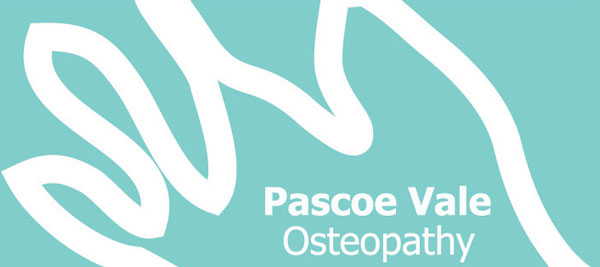Is your pillow ‘painful’ or ‘perfect’?
Written by Dr. David Howard – B.Sc. (Clinical Sci.), M.H.Sc. (Osteopathy), B.App.Sc (Human Movement) from Pascoe Vale Osteopathy located in Pascoe Vale, Melbourne, Victoria, Australia.
Most of us, hopefully, spend at least 8 hours a night with our head on a pillow. This can become a big problem if your pillow is not  supporting your neck correctly.
supporting your neck correctly.
The spine in your neck curves in order to evenly distribute the weight of your head when upright. Whatever position you prefer to sleep in, it is important to keep your spine as close as possible to its correct alignment – which is how it is when upright. This means that the natural curve is maintained and the shoulders aren’t squashed.
Symptoms of a bad pillow
If your neck is not supported correctly when sleeping, an array of symptoms can develop such as:
Neck pain
Headaches
Migraines
Shoulder pain
Numbness and tingling in the hands (due to the nerves and blood vessels being squashed)
Upper back pain
Lower back pain
Neck stiffness in the morning
Restlessness/tossing/turning at night (which will negatively affect your immune system)
What happens when your pillow is not right…
Too High
Your neck will be bent away from the bed, stretching the muscles and taking the spine out of alignment.
Too Low
Your neck will sag towards the bed putting a strain on the spine and neck muscles. If you are a side sleeper it will squash your shoulder, and also make you more likely to roll your leg forwards which puts your lower back in poor alignment.
No Contours
If your pillow has no contours it is harder for the natural curves of the spine to be maintained. A supportive pillow with contours fills the neck arches and therefore maintains the correct curves. It can also take pressure off your shoulder if you sleep on your side.
Is your pillow ok?
Here are some questions to ask yourself about the pillow you are currently using:
Is it more than 2 years old?
When you lie on your side do you feel pressure on your shoulder?
Do your sleep with your arm or hands under your pillow?
Do you try to support your neck with your hands when sleeping?
Are you constantly fluffing up your pillow?
Do you try to bunch your pillow into your neck for more support?
Do you toss and turn?
Do you have any of the symptoms mentioned above such as neck pain and headaches?
Do you wake up in the morning with a stiff neck?
If you have answered YES to 2 or more of the questions you need a new pillow as you are probably not getting the neck support that you need!
How to get it right…
How do you sleep?
If you are a back sleeper, the pillow needs a contour to mould to the back of your head and neck. It will be lower than those who sleep on their sides.
If you are a side sleeper the width of your shoulders determines how high the pillow needs to be. The broader you are the higher the pillow needs to be as the gap between the side of your head and your shoulder is greater. There also needs to be a contour to maintain the correct alignment of the spine as there is a difference in height between the side of your head and your neck.
Avoid sleeping on your stomach. If you’re finding the habit hard to break, you will need either no pillow or a very thin pillow as a higher pillow will turn your neck further to the side and produce more strain.
How hard is your bed?
With a soft bed you need a lower pillow as your shoulder sinks into the bed. Therefore you need a higher pillow with a firmer bed.
How much do you weigh?
Your weight also effects which pillow is correct for you as it effects how far you sink into the bed. The heavier you are, the lower the pillow needs to be.
Get someone to check you out
A great way to check if your pillow is the correct height is to get someone to look at you lying on it! If you are a side sleeper, from behind your neck should look straight – not bent up or down. If you are a back sleeper then your neck should look like it does when you are upright with your chin a good distance from your chest. If you’d like me to check your pillow/sleep positioning, feel free to bring your pillow in with you to your next osteopathic consultation.
Disclaimer: Information provided in this post is of a general nature and should not be used solely in place of individual advice from either myself or another medical professional. Pascoe Vale Osteopathy and Dr. David Howard will not take responsibility for any injury resulting from following information in this post.
Pascoe Vale Osteopathy provides osteopathic services to patients from a wide number of suburbs such as Pascoe Vale, Essendon, Essendon North, Moonee Ponds, Strathmore, Niddrie, Keilor, Coburg, Brunswick, Oak Park, Glenroy, Airport West, Travancore, Melbourne, Australia.
